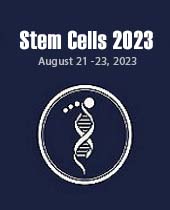Title : In vitro induction of mesenchymal stem cells into male germ-like cells by retinoic acid and titanium nanotubes-coated fibrin
Abstract:
The global health community has dramatically improved maternal and child health, during the past few years; azoospermia is a key component of reproductive health. Our purpose is to survey and promote the potential of mouse bone marrow mesenchymal stem cells (mBMMSCs) differentiation into late-stage male germ-like cells (MGLCs) as an outlook to use these cells in infertility treatment.
Materials and Methods: The in vitro mBMMSCs differentiation into MGLCs was promoted by applying the effective concentration of retinoic acid (RA) and culturing them in titanium nanotubes (TNTs)-coated fibrin (F+TNT) formation as a 2D scaffold afterward. The biocompatibility and morphology of the TNTs and the F+TNT properties were examined by MTT and Scanning Electron Microscope (SEM) analysis, respectively.
Results: The optimum biocompatibility dose of TNTs was found 50 µg/ml for differentiation after 14 days. The morphology of the TNTs and F+TNT were confirmed using SEM and Raman spectrum, respectively. After culturing the mBMMSCs in RA and F+TNT formation with RA, a male germ cells specific marker, Dazl, expression, and the cells' integrity in fibrin were revealed using Western Blots and Real-Time quantitative PCR (RT-qPCR). (P < 0.05).
Conclusion: We investigated mBMMSCs can be differentiated into MGLCs in a medium containing 10-5 M RA in which the specific marker was expressed properly in 2D F+TNT formation. In addition, F+TNT could offer a proper 2D scaffold for mBMMSCs-derived germ-like cells regarding in vitro maturation (IVM) of assisted reproductive technology (ART).


